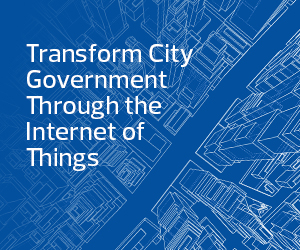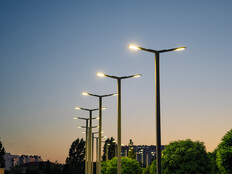Memphis and Philadelphia Embrace Smart City Goals
Brad Gates, manager of electric construction and maintenance for Memphis Light, Gas and Water, said smart streetlights provide energy and maintenance savings. Memphis’s LED lights last for 23 years, so they do not require frequent replacement.
“Smart nodes let us know when lights are out, so customers don’t have to report outages,” Gates said.
Gates estimated that the Memphis LED Streetlight Conversion Project, to be completed in December, will replace nearly 80,000 streetlights. The city funded the project with a streetlight fee billed to its citizens.
Because the smart streetlights produce savings and help deter crime, the Memphis project won immediate and broad support from all levels of government when it was initially proposed, Gates said.
READ MORE: Learn how smart streetlights support additional smart city initiatives.
In Philadelphia, the Philadelphia Streetlight Improvement Project upgrades roughly 140,000 streetlights, said Tony Rinaldi, program manager at Ameresco. Philadelphia lists the benefits of the project as improving public safety, increasing energy conservation, enhancing operational efficiencies and establishing a communications network.
“Philadelphia began its smart streetlight project with the idea that a smart city was the end goal,” Rinaldi told the panel.
Philadelphia Energy Authority issued a $90 million bond to fund the project, which will last for two more years.
Philadelphia Smart Cities Director Akshay Malik was scheduled to participate on the panel, but his arrival at the conference was delayed.
Keep this page bookmarked for our coverage of the Smart Cities Connect 2023 fall conference. Follow us on X, formerly known as Twitter, at @StateTech. Join the conversation using the hashtag #SCC23.












